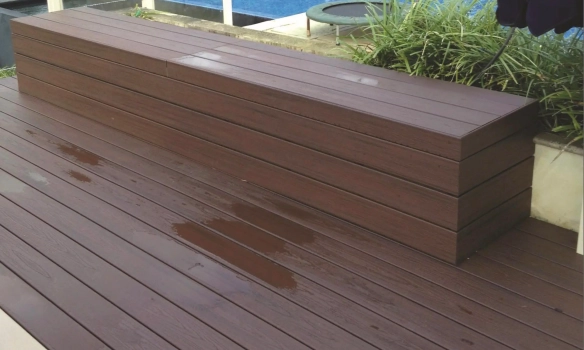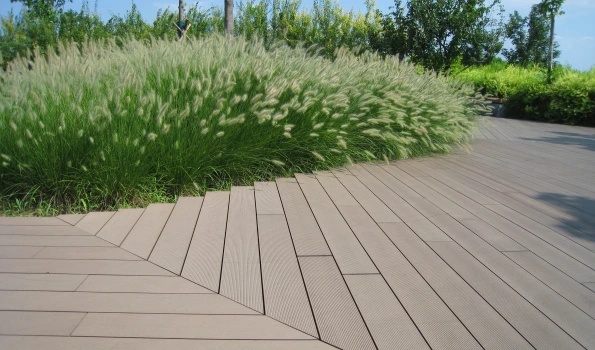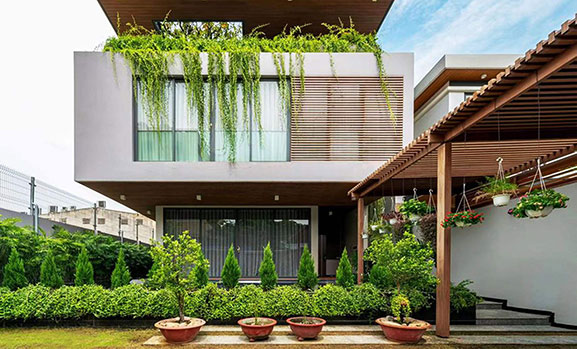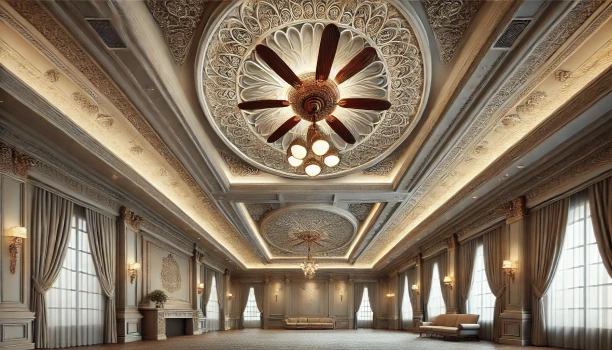Wood Plastic Composite Decking VS. UPVC Decking
When it comes to creating outdoor spaces, the type of decking you choose plays a critical role. Decking isn't just about appearances—it needs to withstand the elements, require minimal upkeep, and last for years. Two popular choices you'll encounter are Wood Plastic Composite and UPVC decking. Understanding the differences between these options will help you make the right choice for your needs, balancing style, durability, and practicality.
Table of Contents
What's Wood Plastic Composite Decking & UPVC Decking?
Composite Decking
The wood plastic compostie decking combines recycled wood fibers with plastics, creating a strong yet natural-looking decking option.
UPVC Decking
Made entirely from un-plasticized polyvinyl chloride, UPVC is a lightweight, synthetic material designed for durability and resistance to moisture.
Composite Decking: The Eco-Friendly All-Rounder
Composition and Structure
Composite decking mixes natural wood fibers with plastic, giving you the beauty of wood and the strength of modern engineering. This blend creates a material that mimics the look and feel of wood without the hassle of maintaining it.
Advantages
Natural Appearance: Its grain patterns and textures give a warm, authentic feel.
Durability: Resists rot, decay, and insect damage, and doesn't warp or splinter.
Low Maintenance: Requires no painting, staining, or sealing—just a simple rinse with water.
Environmentally Friendly: By using recycled materials, it reduces waste and helps protect forests.
Considerations
Composite decking tends to cost more upfront, and if not UV-protected, colors may fade in strong sunlight.
UPVC Decking: The Practical and Cost-Effective Option
Composition and Structure
UPVC decking is made entirely from plastic, offering a sleek, lightweight, and highly moisture-resistant material.
Advantages
Waterproof: Doesn't absorb water, so it won't rot or develop mold.
Minimal Maintenance: No staining, painting, or heavy cleaning needed—just occasional washing.
Lightweight and Easy to Install: Perfect for DIY enthusiasts.
Considerations
UPVC decking can look less natural, become brittle in extreme weather, and has limited color options. Over time, it might fade.
Head-to-Head Comparison
Aesthetic Appeal
Composite decking offers a more natural look, while UPVC decking appears more artificial.
Durability
Composite decking holds up better against physical damage, while UPVC excels in moisture resistance but can lose toughness in extreme conditions.
Maintenance
UPVC decking requires slightly less effort to maintain. Composite decking may need occasional scrubbing for stubborn stains.
Environmental Impact
Composite decking, made from recycled materials, is the greener choice compared to fully plastic UPVC.
Conclusion
When it comes to decking, there's no one-size-fits-all solution. Composite decking offers natural beauty and eco-friendliness, while UPVC delivers moisture resistance. By understanding your project's needs, you can make the best choice and create an outdoor space you'll love for years to come.
If you are looking for a WPC manufacturer, MATECO will be your best choice.
WhatsApp: +86-13380085620
Email: info@matecowpc.com


















